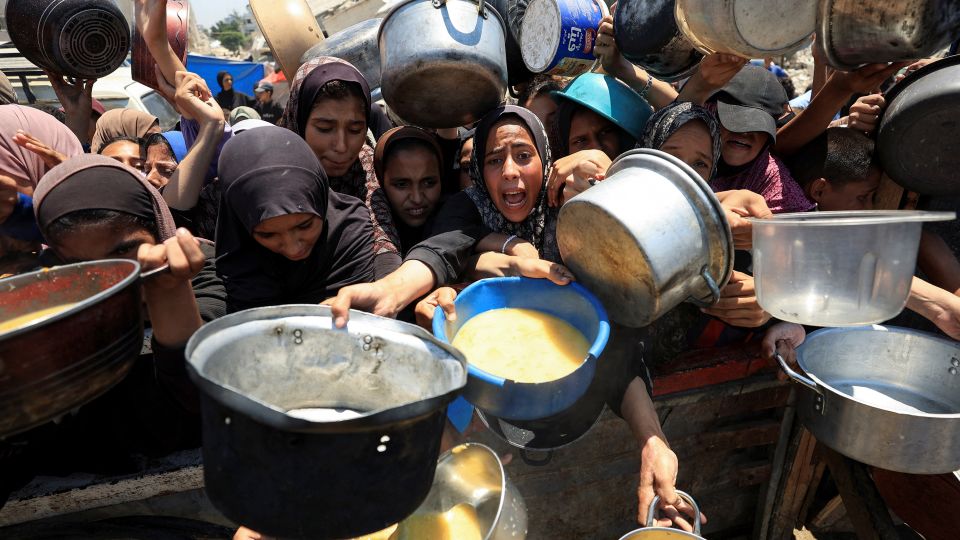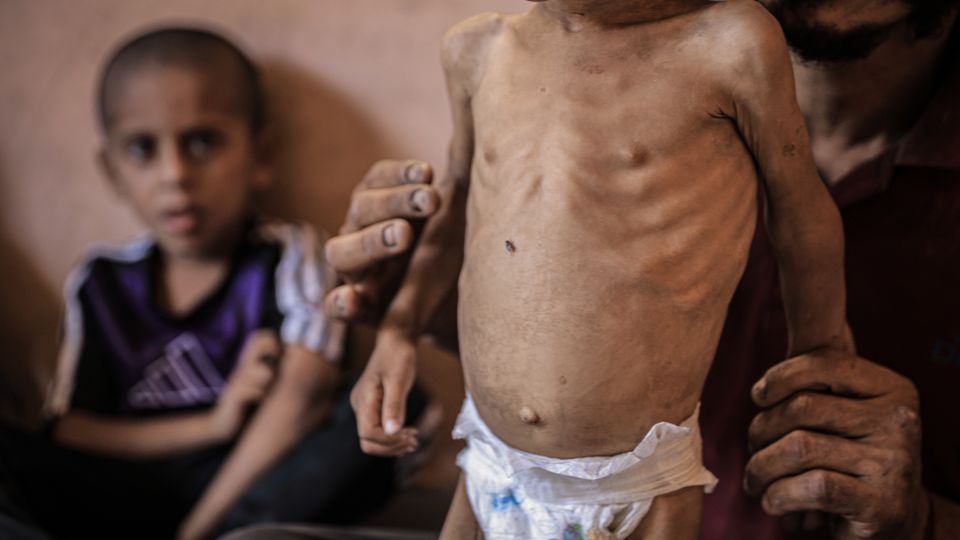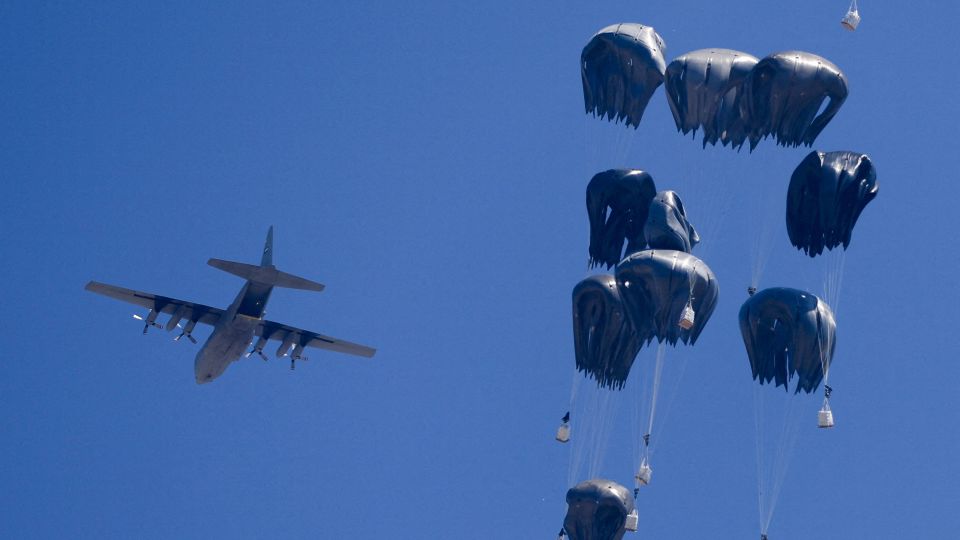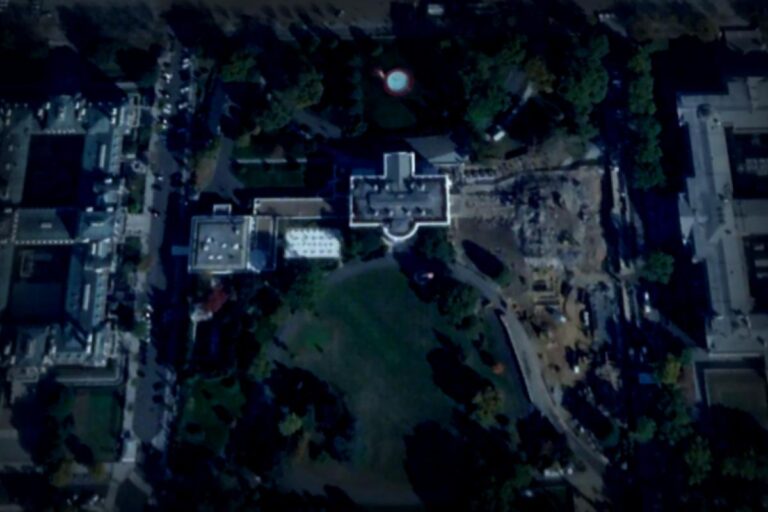In an effort to alleviate the dire situation for Gazans, Israel recently declared a daily tactical pause in military activity across three specific regions of Gaza. This move comes as international outrage mounts due to widespread reports of starvation in the territory.
The Israeli military aims to counteract claims of deliberate starvation with this pause, which aims to open corridors for aid delivered by the UN and various humanitarian organizations. Despite the well-intended gesture, many believe it’s too little, too late, as news of numerous deaths tied to malnutrition continues to emerge. Aid convoys still struggle to reach those in need.
Here’s a snapshot of the evolving situation:
Understanding the Context of the Crisis
The humanitarian crisis in Gaza is staggering. Following extensive conflict spurred by the October 7 Hamas attacks, a vast number of Gazans have been displaced multiple times, leaving tens of thousands homeless, living on the streets or in makeshift tents. The destruction of Gaza’s essential infrastructure has made access to basic necessities, like water and power, increasingly difficult.
Adding to the crisis, the ongoing fighting has hindered crucial humanitarian food aid deliveries. Before the war erupted, around 3,000 aid and supply trucks crossed the borders weekly, a figure that has drastically diminished. An average of a few hundred trucks passed through during a short-lived ceasefire earlier this year, but this level of access didn’t last long.
In March, a strict blockade was enacted after it appeared Hamas was not loosening its grip on hostages, intensifying already widespread hunger. As bakery closures and rising market prices further exacerbated this crisis, it became apparent that food shortages were adding to the intensity of the situation.

By no means were Gazans idle, as desperate individuals clawed to obtain food for families, leading to over 1,000 fatalities, mostly attributed to Israeli military actions.
As early as May, it was identified that the entire Gazan population faced severe food insecurity, with 500,000 individuals teetering on the brink of starvation and more than 70,000 children predicted to need treatment for acute malnutrition. As levels of malnutrition peaked in July, the World Health Organization reported increasing deaths and urgent cases of acute malnutrition among children.
Since the onset of the conflict, over 133 deaths from malnutrition have been recorded, nearly 90 of them among children, particularly distressing figures preceding the corresponding rise during March.
A string of heartbreaking images depicting malnourished children has stoked outrage across the globe. Prime ministers from the United Kingdom, France, and Germany recently stated the crisis was human-made and avoidable.

What Steps has Israel Taken?
The tactical pauses described by the Israeli military are confined to the Al-Mawasi, Deir al-Balah, and parts of Gaza City—all areas previously expected to provide safety to civilians. A designated map was shared, highlighting these regions while demarcating the rest of the Strip as an active conflict zone.
Commencing on Sunday, the pause will last ten hours each day—from 10 AM to 8 PM local time—as officially stated by the military.
If raids are one avenue to deliver aid, Monday witnessed a nightly airlift into Gaza, with several countries contributing to this operation as part of international humanitarian assistance. Yet, airdrops are often labeled as inefficient and sometimes jeopardous, with UNICEF stressing the concerns over their application in bustling urban settings.
Additionally, reports already indicate that the IDF has established connections to a desalination plant, a hopeful step which might provide Gaza with an abundant supply of fresh water compared to previous throughput.
Here’s the catch: Hamas has been highly critical of the Israeli government’s plans, labeling the action mere optics to mask deeper humanitarian issue creating strategic control over disposal of aid.

Can Conditions Improve Soon?
As aid trucks make their way to Gaza—including deliveries coming in from Egypt and Jordan—the need for extensive assistance cannot be overstated. While there are thousands of trucks prepared to provide food and medical necessities, logistical hurdles remain a barometer of the external entry into Gaza, primarily through its two main crossing points.
Only about a hundred truckloads have made their way into Gaza thus far, but voices from the UN stress that systematic variations are essential to tangle with the escalating crisis that much re-deliverables across Palestinian settlements cannot cope badly.
Moreover, challenges persist due to insufficient permissions from Israeli military—a situation that needs resolution given that malnourished children require unrestrictive, comprehensive support to recover.
The World Food Programme has welcomed Israel’s newfound openness regarding aid flows, noting favorable conditions which could ensure relief for over 2 million Gazans for nearly three monthsioerad almost assured commitments concerning urgent clearances.
This adjustment route may not sit well together with dissenting perspectives from some factions. National Security Minister Itamar Ben Gvir contended that halting humanitarian aid is a measure to grapple forcefully with the persistence of strife concerning hostages. The atmospheric situation is sure to keep Python liven within Israeli governing alignments.
Meanwhile, a call from the Hostages Families Forum echoes the necessity of linking these tactical pauses with more significant resolutions towards abolishing hostilities entirely amidst addressing hostage concerns. The failings associated with piecemeal alternative compromises stunted strategy adoption must be confronted now!




















